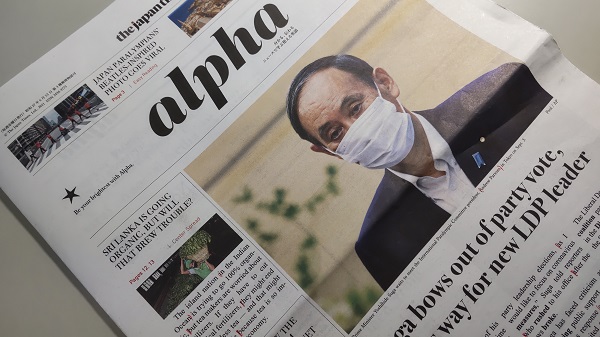The Japan Times Alpha の記事を読んで楽しみながらボキャビルも増やしたいということで、印象に残ったことを記録していきます。
.
.
2021.9.17日号の記事から(完読度90%)
.
中国で女々しい男性のテレビ出演が禁止になったお話。
.
この記事を読んで、北京でLGBTQの人たちはどういう扱いなのかなーと思った。施設に収容されて性癖までも叩き直されるんだろうか。
.
■
.
スリランカ政府が、全ての紅茶をオーガニックに転換しようとしているお話。健康的で持続可能と聞こえはいいが、根本的な理由は、単なる外貨不足で既存の農業に必要な肥料や農薬を買えなくなっただけらしい。
.
.
Organic tea costs 10 times more to produce and the market is limited.
He called the organic project "a dream with unimaginable social, political and economic costs.
.
.
農家の人が気の毒なだけでなく、食の安全保障も損なうだろうな。
.
.
You say "very unique."
.
very と unique は一緒に使わない。話し言葉では使われるそうだが厳密には間違った言い方だそうだ。少し人を見下したりディスるときに使うんだろうか。
.
あとは This week's OMG と Where now for the Afghan refugees? が面白かった。
.
■
.
今週気になったニュース
.
.
fly (計画・案などが)うまくいく
But when it comes to business, that communication style simply does not fly.
.
.
What's Chee-su? ちーす
No, it's not a call for extra cheese on your pizza or a toast for good wishes before drinking. The word is abbreviated by taking chi from konnichiwa and su from desu, and we get Chee-su.
It's a super chilled-out casual slang term appropriate only to use with friends you know well.
You'd never, ever use it in formal or professional situations, just as you wouldn't greet your boss with "Sup," welcome your in-laws with "Yo," meet a business client with "Hi-ya," or address someone you barely know with "What's crackin'?"
.
.
The Japan Times Alpha より引用
.
.
■
.
.




コメント